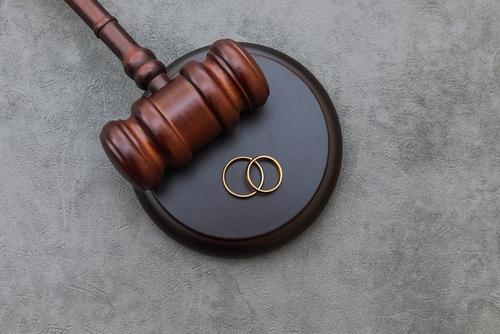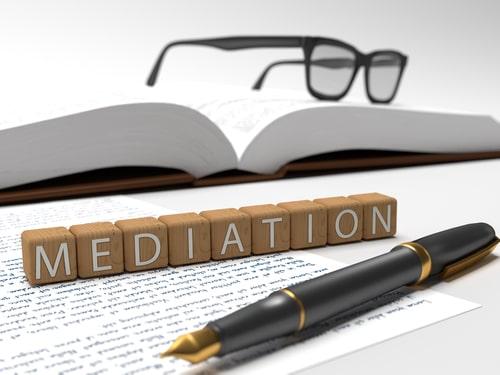Recent Blog Posts
Can a Mediator Help with My Divorce?
 Most Illinois divorces are resolved without the need for a trial. However, not every divorce begins on the path toward an amicable resolution. There are some instances in which you may need some extra help to reach an agreement. A professional mediator can help you and your spouse find common ground and move toward a potential settlement.
Most Illinois divorces are resolved without the need for a trial. However, not every divorce begins on the path toward an amicable resolution. There are some instances in which you may need some extra help to reach an agreement. A professional mediator can help you and your spouse find common ground and move toward a potential settlement.
How Mediation Works in a Divorce
A mediator is a trained party who is neutral. They do not have any power to decide issues in the divorce, nor will they take sides between the two spouses. Instead, they will help the two parties talk. The mediator would help the spouses find common ground and help them navigate the more difficult issues that stand between the parties and a final agreement. The hope is that, by communicating and exchanging viewpoints, the two spouses can bridge the gap and eventually reach an agreement.
Non-Minor Support Obligations - What You Need to Know
 When a couple divorces, child support is provided to the parent with the most parenting time. Child support may be used to care for the child's various needs, including education, rent or mortgage, clothing, groceries, and other expenses.
When a couple divorces, child support is provided to the parent with the most parenting time. Child support may be used to care for the child's various needs, including education, rent or mortgage, clothing, groceries, and other expenses.
Most child support orders terminate once the child turns 18 and graduates from high school. Child support payments may be extended until the child completes their undergraduate degree. However, when a child has a disability, child support obligations may need to continue well after the child has become an adult.
If a child has a disability, they will not be able to attain the same level of education or independence as children without disabilities.
In Illinois, non-minor support is provided to children with disabilities and their parents to meet their increased financial needs.
What are Irreconcilable Differences in an Illinois Divorce Case?
 Divorce is a difficult decision and a complex undertaking. There may be various reasons for the dissolution of marriage, from different values to commitment issues. However, since Illinois is a no-fault state, married couples do not need to assign blame for the divorce. The only ground for divorcein Illinois is irreconcilable differences.
Divorce is a difficult decision and a complex undertaking. There may be various reasons for the dissolution of marriage, from different values to commitment issues. However, since Illinois is a no-fault state, married couples do not need to assign blame for the divorce. The only ground for divorcein Illinois is irreconcilable differences.
What are Irreconcilable Differences?
Irreconcilable differences are when two married people are completely incompatible, and their marriage has broken down to such an extent that reconciliation is no longer possible.
In Illinois, reconcilable differences are the only basis for divorce.
How Do Couples in Illinois Prove Irreconcilable Differences?
Showing irreconcilable differences is a straightforward process. According to the Illinois Marriage and Dissolution of Marriage Act, the divorcing couple must state that they have differences in marriage, and any attempts to reconcile have failed. In addition, they need to state that any further attempt at reconciliation will not be practical and may not be in the family's best interest.
Default Divorce, Contested Divorce, and Uncontested Divorce: Understanding the Differences
 Divorce is the legal process of dissolving a marriage between two people. In Illinois, there are several types of divorce, each with its own unique set of rules and requirements. While it is possible to file for divorce without the help of a lawyer, it is highly recommended that you seek legal advice to ensure that your rights are protected, and your interests are represented. In this article, we will discuss the different types of divorce in Illinois and why you need a divorce lawyer.
Divorce is the legal process of dissolving a marriage between two people. In Illinois, there are several types of divorce, each with its own unique set of rules and requirements. While it is possible to file for divorce without the help of a lawyer, it is highly recommended that you seek legal advice to ensure that your rights are protected, and your interests are represented. In this article, we will discuss the different types of divorce in Illinois and why you need a divorce lawyer.
Types of Divorce in Illinois
Uncontested Divorce
An uncontested divorce is when both parties agree to the terms of the divorce, including division of property, spousal support, and child custody. This type of divorce is often faster and less expensive than other types of divorce, but it is still reccomended to work with a lawyer to ensure that all legal requirements are met.
Contested Divorce
Helping Yourself Cope with Your Divorce
 When we, as people, experience a significant change in our lives, our emotional well-being can be turned upside down. Few changes are more significant than going through a divorce. While working with an experienced divorce attorney to protect your legal rights is crucial, taking care of yourself during this difficult time is also essential. We recently wrote a blog discussing how best to help your child cope with a divorce. Today, we will discuss tips for helping yourself cope with your divorce.
When we, as people, experience a significant change in our lives, our emotional well-being can be turned upside down. Few changes are more significant than going through a divorce. While working with an experienced divorce attorney to protect your legal rights is crucial, taking care of yourself during this difficult time is also essential. We recently wrote a blog discussing how best to help your child cope with a divorce. Today, we will discuss tips for helping yourself cope with your divorce.
Tips for Coping with Your Divorce
The following are tips on how to best help yourself cope with the divorce, including:
-
Seek support early and often – It is important to seek support from your friends, family, or therapist during your divorce. Talking to someone can help you process your feelings and emotions and provide you with the support you need during this difficult time. Ensure to maintain a strong base of support during and after your divorce
Helping Your Child Cope with the Divorce
 Divorce can be a very upsetting and emotional time for everyone involved, especially children. Children may feel confused, scared, and uncertain about the future. As a parent, it is important to help your child cope with the divorce and provide the support and guidance they need during this challenging time. Remember that an experienced divorce lawyer can be an excellent resource as you navigate this situation. Experienced divorce lawyers have likely dealt with many families in the past and may have insight into how best to help your child cope with everything that is happening.
Divorce can be a very upsetting and emotional time for everyone involved, especially children. Children may feel confused, scared, and uncertain about the future. As a parent, it is important to help your child cope with the divorce and provide the support and guidance they need during this challenging time. Remember that an experienced divorce lawyer can be an excellent resource as you navigate this situation. Experienced divorce lawyers have likely dealt with many families in the past and may have insight into how best to help your child cope with everything that is happening.
Tips for Helping Your Child Cope
Here are some tips for helping your child cope with the divorce, including:
-
Be open and honest – It is essential to be open and honest with your child about the divorce. Children may have many questions and concerns, and providing them with accurate information and reassurance is crucial. Answer their questions age-appropriately and avoid sharing unnecessary details or information that could be harmful.
Understanding What Irreconcilable Differences Mean in a No-Fault Illinois Divorce
 In Illinois, a no-fault divorce is one where a couple can end their marriage without having to prove that one party caused the marriage to break down. Instead, the couple can cite “irreconcilable differences” as the reason for their divorce. Even though Illinois is a no-fault state, it is still essential to hire an experienced divorce attorney to help ensure you can protect your rights.
In Illinois, a no-fault divorce is one where a couple can end their marriage without having to prove that one party caused the marriage to break down. Instead, the couple can cite “irreconcilable differences” as the reason for their divorce. Even though Illinois is a no-fault state, it is still essential to hire an experienced divorce attorney to help ensure you can protect your rights.
What Are Irreconcilable Differences?
Irreconcilable differences are defined as “irretrievable breakdown of the marriage” and require a showing that the marriage was broken down to the point where it could not be repaired. This means the parties have attempted to reconcile and failed or have been living separately and apart for at least six months, and there is no hope for reconciliation.
When a couple files for divorce based on irreconcilable differences, they must file a petition for dissolution of the marriage and provide a copy to their spouse. The other spouse then has 30 days to file a response to the petition. If the other spouse does not file a response within 30 days, the divorce can proceed as an uncontested divorce. However, if the other spouse does file a response, the parties must attend a hearing to resolve any issues related to their divorce.
What Do Most People Get Wrong About Divorce Mediation?
 Divorce mediation is a process that allows divorcing couples to work together to resolve their disputes and reach a mutually acceptable agreement. Instead of going to court, the parties work with a neutral third party, the mediator, who facilitates discussions and helps the parties find common ground. However, several things need to be clarified about divorce mediation that can prevent people from considering it as an option. Working closely with a family law attorney can help you better understand the potential benefits of divorce mediation as you decide whether it is a viable option for you and your situation.
Divorce mediation is a process that allows divorcing couples to work together to resolve their disputes and reach a mutually acceptable agreement. Instead of going to court, the parties work with a neutral third party, the mediator, who facilitates discussions and helps the parties find common ground. However, several things need to be clarified about divorce mediation that can prevent people from considering it as an option. Working closely with a family law attorney can help you better understand the potential benefits of divorce mediation as you decide whether it is a viable option for you and your situation.
Misconceptions About Divorce Mediation That You Need to Be Aware of
Here are some of the most common things people get wrong about divorce mediation, including:
-
You have to be on good terms with your spouse – One of the most common misconceptions about divorce mediation is that the parties must be on good terms with each other to use the process. However, this is not true. While it does help if spouses are on decent terms, mediation can be effective even if the parties are angry, bitter, or resentful of each other.
Protecting Yourself During High Conflict Divorces in Naperville, Illinois
 Divorce can often be a difficult and stressful experience for everyone involved, especially in high-conflict situations. Those going through a high-conflict divorce are sometimes more distressed about issues such as mental health concerns, substance abuse, and harassment/domestic violence issues that may arise during the divorce process.
Divorce can often be a difficult and stressful experience for everyone involved, especially in high-conflict situations. Those going through a high-conflict divorce are sometimes more distressed about issues such as mental health concerns, substance abuse, and harassment/domestic violence issues that may arise during the divorce process.
Mental Health Difficulties
Anybody's mental health may suffer as a result of the emotional strain of a high-conflict divorce. One or both parties may develop anxiety, depression, or other mental health problems during a high-conflict divorce. The Illinois State Bar Association offers tools for locating mental health specialists with experience helping people going through a divorce.
Substance Abuse
For people battling with substance abuse, divorce might be a trigger. Substance abuse can become an even bigger problem in divorces with high levels of conflict. Drug or alcohol abuse by one or both spouses as a coping mechanism for the stress of the divorce process is not unusual. It's crucial to get help if substance misuse is a problem in a high-conflict divorce. The Illinois Department of Human Services provides resources for substance abuse treatment centers throughout the state. Additionally, the court may require the parties to participate in drug or alcohol treatment programs as a condition of the divorce settlement.
The Difficult Issues of Relocating Children in Illinois Divorce Cases: What You Need to Know
 Child relocation during a divorce can be a complex and emotional issue, and parents in Naperville, Illinois, must be aware of the difficulties that may arise during this process. When parents cannot agree on the relocation of their child, the court will make a judgment that is in the best interests of the child. This is where an attorney familiar with complex child issues can help you.
Child relocation during a divorce can be a complex and emotional issue, and parents in Naperville, Illinois, must be aware of the difficulties that may arise during this process. When parents cannot agree on the relocation of their child, the court will make a judgment that is in the best interests of the child. This is where an attorney familiar with complex child issues can help you.
Deciding The Child’s Best Interests
Choosing what is in the best interests of the child is one of the trickiest problems with child relocation following divorce. The court will weigh a number of issues before deciding whether to grant a parent's request to move with a child. These considerations encompass the child's health—emotional, psychological, and physical—in addition to their interactions with other family members, including their siblings and parents. The relocation distance as well as the child's prospects for social and academic growth in the new community, will be taken into account by the court. The decision will also take into account any past neglect or abuse by one parent or the other.

















